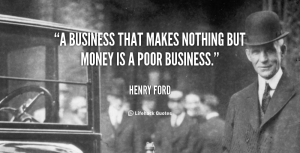
As the world reels from a continuous series of financial, economic, humanitarian and natural crisis’s, the world of Islamic finance is growing. In the past decade the various projected global industry growth figures show this industry sector to be going up, up and away. Yet if one were to co-relate this growth with social development a direct correlation is, as yet, hard to find.
Is there an anomaly?
Within the global Islamic finance industry the strain of growth is starting to tell on the business models in use as issues of talent, technology and socially responsible investments are now the topics of discussion in industry conferences. Couple this with the developments occurring in the mainstream finance industry where areas like social responsible investment, alternative currency and crowdfunding are drawing the organizations to view the disruptions taking place and review their business strategies and models.
On ground, technology has empowered people to be able to seek intellectual, financial and managerial collaborations, generating entrepreneurship and a mushrooming of small businesses. The financial industry, as a whole, is looking at the way investment is changing and the way finance is being run.
Against such a backdrop Islamic finance is beginning to look isolated and bereft of a clearly defined economic and societal value.
Decades ago as Islamic finance came in, as an alternative financial system, organizations took the system for use within the regulatory environment that existed. Regulations changed over time to accommodate market sentiments and with those changes organizations seemed to focus on compliance and not on the purpose of their business.
Therein is the anomaly!
The global industry undertook Islamic finance activities based on their then business models and processes. Models that focused on shareholder return of dollar value as primary objective not social or community development and, thus, it was business-as-usual.
Is there light at the end of the tunnel?
The many financial, environmental, economic and sociopolitical crises, coupled with the advancement and adoption of technology, over the past 20 odd years has brought about seismic shifts in the common man’s buying behaviour. Trust in organizations has eroded given the many scandals. A clearly recorded increase on the dependency of word-of-mouth reference, with regards to engaging with organizations, has come about. Resulting in organizations needing to have specific competencies that simply weren’t in existence 20 years ago. Social media usage has resulted in organizations having to depict simply and authentically their business purpose.
Institutional business has come to the realization that it’s people who make the deals. People who want to work with credible, honest and trustworthy counterparts. Trust has come a full circle and is now at a premium. At the same time, Boards are driving organizations to be more socially responsible and to ensure that the eco-system where a concerned business operates benefits from the services of the organization.
This provides an ideal setting for Islamic finance which, inherently, has economic and societal benefit in-built in its ethical use. Let me clarify through an example—a conventional bank would evaluate various parameters when opening a new branch, in a remote area, including cost-recovery and present a cost-benefit analysis to its board when recommending opening a new branch. The decision would be based on the return its investment would earn and the period in which it would occur. Currently an Islamic bank or financial institution would be doing the same.
But therein is the opportunity!
For an Islamic financial institution the purpose of business is not profit but providing, ethical, financial service to the community. Profit is a secondary objective coming after the benefit to the community has been established. Thus an Islamic finance institution opening a new branch in a remote area should be driven by the societal responsibility of providing services in an area where no such service is available. This involves disrupting the current business models and thinking fresh on the purpose of an Islamic financial institutions business and developing strategy from it to generate required financial gains.
Such gains will encompass developing the eco-system in which the business operates bringing about economic and societal benefit that would not only benefit Muslims but the society at large and enable Islamic finance to show a tangible and distinctive value-benefit.
I’d be delighted to learn of your views on the opportunity that the global Islamic finance industry has and how organizations could capitalize on the same. Please feel free to share your observations.
Thank you for this article Br. Joy. I agree, as I am sure many in the industry do, with your comment – that profits should be a secondary motive, after the benefit of the community is established. It would be great if you could share some thoughts regarding how we can force (for lack of a better word) change within current organisations to regard societal benefit as the primary concern. Would such a model be based on social entrepreneurship?
LikeLike
Salaam Bro Daniel.
Many thanks for your kind comment. With regards to how such change in business model can be brought about I will be having a post on this soon.
However, as a pre-cursor (to that post) and to address your question– One of the possible routes (amongst a few) lies in showing current stakeholders the sustainability of increasing profits over time vis-a-vis short term gains. Another route, as mentioned by you, is social entrepreneurship. Both of these routes have one common factor which is the time period. And this is where the mind-shift, at a strategic level, will need to occur in order for required regulations and financial instruments to come into play.
LikeLike
Wsalam, interesting point on the temporal route strategy must take. I look forward to your post on this!
LikeLike